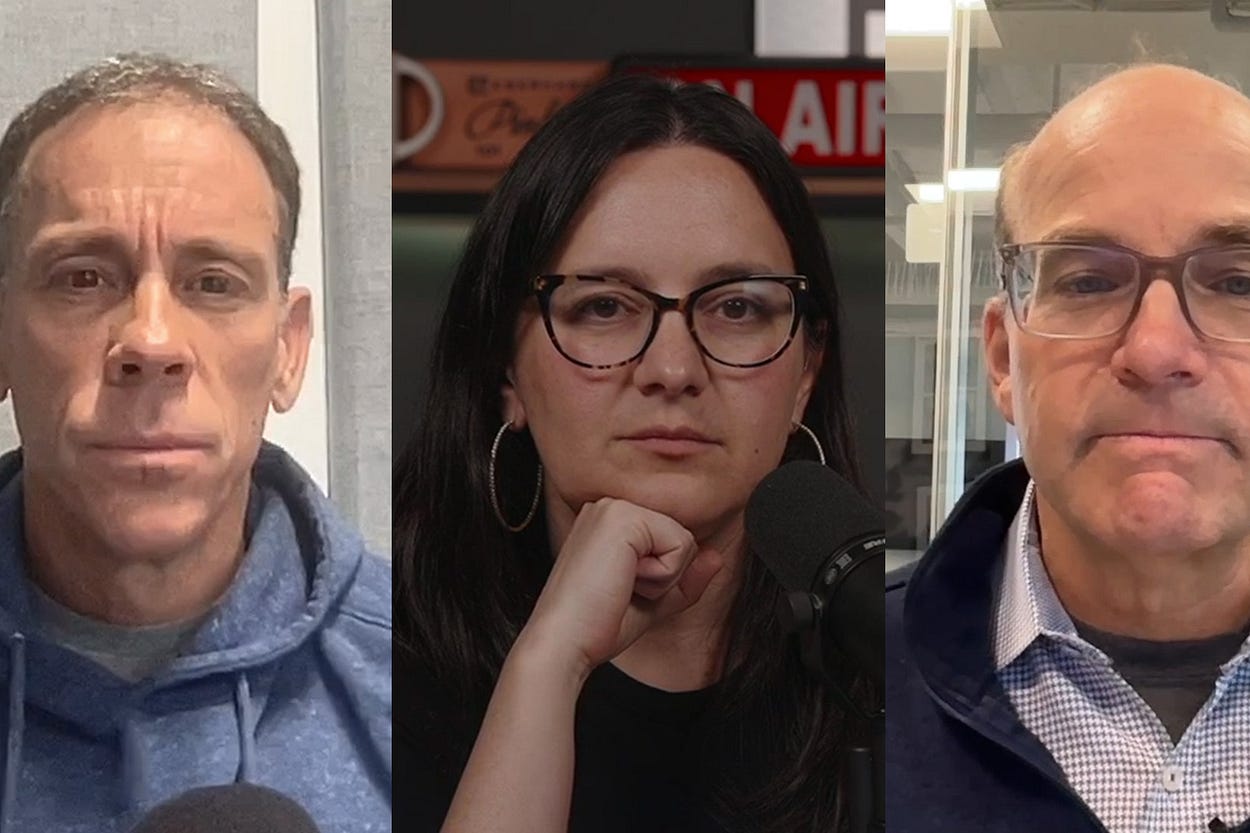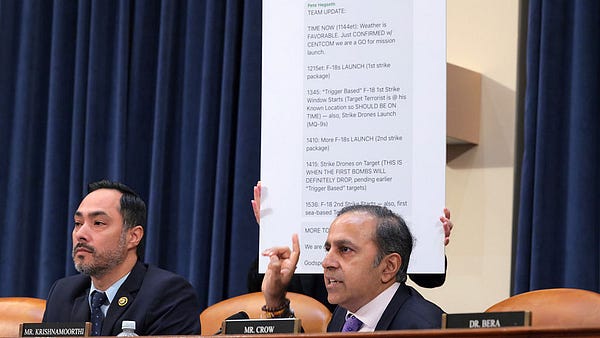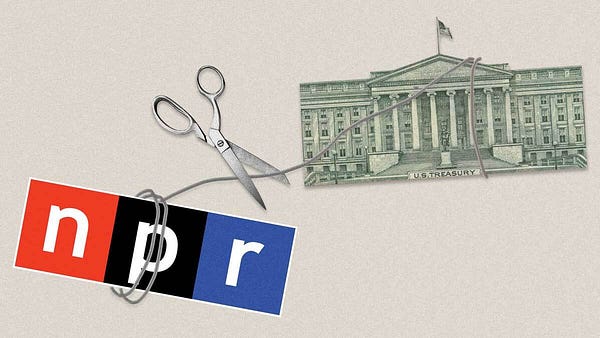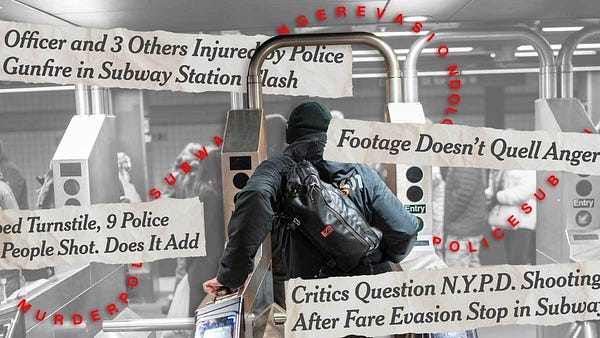
The Free Press

If confidential sources are not protected, investigative journalism will die.
I know that sounds overly dramatic, and I know you’ve probably heard it a million times. But it’s true. I’ve been a TV correspondent for three networks—Fox, CBS, and ABC—across four decades. I’ve broken my share of stories about government wrongdoing, and I know for a fact that if I hadn’t been able to offer my sources a credible pledge of confidentiality, they never would have divulged information that was being kept from the public. Like the story I wrote in 2021, to take just one example, about how the Trump administration wrongly denied Purple Hearts to over 40 soldiers because President Trump didn’t want to acknowledge the severity of Iran’s ballistic missile attack on a U.S. base in Iraq.
Any investigative reporter will tell you the same thing: forcing a journalist to disclose confidential sources will have a crippling effect on effective investigative journalism in this country. The First Amendment provides protections for the press because an informed electorate is essential for robust debate and a strong democracy.
But what happens when you find yourself dragged into a lawsuit, ordered to divulge your sources, and held in contempt when you refuse?
That’s the situation I find myself in now. Yet I know just how important it is that I stand by my promise to keep my sources confidential—not just for me but for all journalists.
In brief: in 2017, when I was the chief intelligence correspondent for Fox News, I broadcast three reports about an FBI investigation. Two years later, the subject of that investigation filed a Privacy Act lawsuit against the FBI and several other federal agencies, claiming they had leaked information to me. The plaintiff now wants me to reveal my source(s) as part of her lawsuit against the federal agencies. During a deposition last September, I refused to do so. As a result, in February, the judge overseeing the case held me in civil contempt.
While I have complete respect for the courts and the judicial process, I am now potentially facing crippling fines of $800 a day until I give up my source(s). (For now, the fines have been stayed pending an appeal.)
Around the same time as that contempt ruling in February, I was laid off by CBS News, which I had joined in 2019. (It’s been a rough year.) After locking me out of the building, CBS seized hundreds of pages of my reporting files, including confidential source information. At that time, my primary assignment was the Hunter Biden investigation as well as Special Counsel Robert Hur’s probe of President Biden. A number of my sources told me they feared that by helping me uncover government corruption, they were now going to be exposed.
Thankfully, with support of my union, SAG-AFTRA, the records were returned. But the incident underscored the fragility of confidential sources, and a corporate culture that seemed to diminish journalism by branding the reporting materials as “work product.” (In a statement issued at the time, CBS News said it “acted to secure and protect the material in Ms. Herridge’s office.”)
It is relatively uncommon for a court or the government to try to force a reporter to divulge sources. But it does happen, and when it does, it has a chilling effect on sources, reporters, and journalism itself. Sources wonder if they can trust a journalist who promises confidentiality, while journalists become less willing to offer that promise. It damages the ability of the press to root out wrongdoing.
There is some good news, though. Congress appears poised to make it far more difficult for journalists to be compelled to divulge their sources. In January, in a rare display of bipartisanship, the House unanimously passed the Protect Reporters from Exploitative State Spying Act, or the PRESS Act.
The bill, which is now awaiting action in the Senate, would mandate the disclosure of sources only in a limited number of cases, including imminent violence, such as terrorist threats. It would also bar the government from surveilling journalists via phone or electronic records. The Reporters Committee for Freedom of the Press and 53 news media organizations call it “. . . a reasonable, common-sense measure to preserve the free flow of information to the public.”
Indeed, a recent letter from a coalition of more than 130 civil liberties and journalism organizations, plus law professors and media lawyers, called the legislation “a rare chance to strengthen freedom of the press.” Led by Senators Ron Wyden (D-OR) and Mike Lee (R-UT), the bill is co-sponsored by Senate Judiciary Committee Chairman Dick Durbin (D-IL) and Ranking Member Lindsey Graham (R-SC). There is hope Durbin can advance the bill with the support of Graham and others before the end of the year. Senate Majority Leader Chuck Schumer is on record saying that he hopes to have the legislation on the president’s desk this year.
In one sense, I’m lucky. Fox News has the resources to support me throughout this fight. I’m grateful for that. But the corporate media companies where I have spent my career are shrinking, while the growth of independent journalism and newsrooms is exploding. Most of these news organizations are small and lack the resources to withstand years of expensive litigation to protect their sources. The PRESS Act, I’m convinced, could be enormously important in preventing these new outlets from being strangled by litigation.
The protection of confidential sources is not about ego, and it doesn’t mean that journalists are somehow above the law. It’s about preserving the tools that shine a light on wrongdoing and hold government officials accountable. No whistleblower, no government insider with firsthand knowledge of corruption and misconduct will come forward without a promise their identity will be protected. In other words, without the promise of confidentiality, a reporter’s investigative toolbox is empty.
The litigation, and especially the contempt ruling, have taken a toll on me and my career. But I’ve come out the other side—bruised, but with a new sense of purpose and clarity. The First Amendment, the protection of confidential sources, and a free press are my guiding principles.
A few months ago, I had the opportunity to testify before Congress on the subject of press freedom and confidential sources, and in support of the PRESS Act. I told the legislators, “One of our children recently asked me if I would go to jail, if we would lose our house, and if we would lose our family savings to protect my reporting sources. I wanted to answer that, in this country, where we say we value democracy and the role of a vibrant and free press, it was impossible. But I couldn’t offer that assurance.”
Our son told me, in a matter-of-fact tone, “to do what it takes,” and he offered reassurance. “I’ve got your back.” I testified that if a teenager can understand the importance of the PRESS Act, surely the Senate can advance the bill and the president can sign it. As we head into the next presidential election, the PRESS Act may be the one issue that can unite both parties.
I hope that I am the last journalist who has to spend two years or more in federal court defending confidential sources against the threat of contempt sanctions. If we want to preserve robust investigative journalism in the United States, I believe the PRESS Act is the hill to die on.
Catherine Herridge is an Emmy Award–winning veteran investigative correspondent who covers national security and intelligence. Follow her on X @C_Herridge.
And to support fearless journalism, become a Free Press subscriber today:















Catherine, we are grateful to have a journalist like you, with high professional and moral qualities. Thank you.
Worth a read - the Court's not being flippant here, and "binding case law" shows that this issue has been debated in the past. Why take away this option from the Courts when they are treating it with significant respect?
https://webservices.courthousenews.com/sites/Data/AppellateOpinionUploads/2023-02-8--13-47-52-118cv3074.pdf